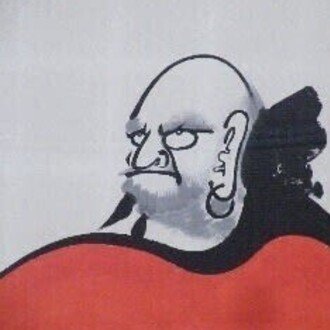
この一冊から学ぶ。未来が創造できる歴史をつくるために― 【おやじ感想文シリーズ 】 To create a history that can create the future, learning from this book.
長年生きていると、いろんな人やモノに出会う。そして興味をもつことも増える。実際に会って話を聞き、またネットや新聞、TVなどで多くの情報がインプットされる。それらの中から心が動かされたものを書き留めてきた。それを「おやじ感想文」という題目で綴ってきた。その中から切り取った情報を引っ張りだし、少し手を加えお伝えしたいと思っている。
その一弾が、高等課程の「国語の教科書」。以前、勤務していた高等課程を有する専門学校のときにブームイン。
After living for many years, I meet various people and things. And I get more interested. We meet and listen to stories, and a lot of information is input on the net, newspapers, TV, etc. I have written down the ones that moved me. I have spelled it out under the title of "Oyaji Impressions". I would like to pull out the information cut out from it and convey it with some modifications.
One of them is the advanced course "Japanese language textbook". Boomed in when I was a vocational school with a high school that I used to work for.
国語教科書の構成はこうだ。
大まかにいうと、随想、小説、評論、詩、短歌・俳句、古文、漢文で構成されている。
当然のことながら、高校生(高1)の、広い分野から国語能力を高めるために編さんされている。
読むに連れて教科書として、それぞれの分野の適切な材料が選ばれ掲載されていることに感心する。(筆者は教員ではなく職員だったので教科書に触れるのは学生時代以来)
その中の小説分野で、文学と現実というテーマの中に「沖縄の手記から」という昭和47年に「新潮」に発表された小説の一部が掲載されていた。小説家田宮虎彦さんの作品である。
タイトルで内容は想像ついた。太平洋戦争末期に沖縄本島に上陸してきたアメリカ軍と日本軍との間で激しい闘いの中、生きるか死ぬかという極限状態におかれた時の様子を描いたものだった。
In the field of novels, a part of the novel published in "Shincho" in 1972, "From Okinawa's Note" was published in the theme of literature and reality. It is a work of novelist Torahiko Tamiya. I could imagine the content with the title. It depicts the situation when the American army and the Japanese army, which landed on the main island of Okinawa at the end of the Pacific War, were in an extreme state of living or dying in a fierce battle.
The main character is a military medical captain who is the commander of the medical department of the Naval Air Corps. In 1945, the content was a spectacular scene with a nurse (currently called a nurse), who was the position where the squad leader led his subordinates.
主人公は海軍航空隊の医務科分隊長の軍医大尉。昭和20年、分隊長が部下を率いてたどり着いた陣地である一人の看護婦(現在の呼称は看護師)との壮絶な場面を切り出した内容だった。
兵隊や他の看護婦たちは南下し誰もいなくなった壕の中で、負傷した兵士の世話をする一人の看護婦に向かって主人公の医務科分隊長はこういった。(以下抜粋)
「私たちは命令が下り次第、南に下がらなければならない」
「あなたも私たちといっしょに南に下がってください。あなたがここに残っても、あの負傷者たちはもう一人も生き残ることはできないのだ」
(中略)
娘(看護婦)は「私はここに残ります」
「あなたはここに残れば死ぬよりほかないんだ。しかし、あなたはあの兵隊たちとは違うんだよ」
分隊長はいくら説得しても娘はかたくなに「ここに残ります」と繰り返す。
「どうして、そんなにあなたは死にたいのだ、あなたにはお父さんやお母さんがいるだろう、生きてさえいれば、また会える時があるはずじゃないか」
(中略)
「私の父も母も、もう生きていません。みんな死んでしまったのです、私、一人、ここで生き残ったって・・・」
(中略)
分隊長は娘に、もう一度、いっしょに南へ下がってほしいと言った。分隊長は説得する気持ちではなく、むしろ願いの言葉だった。
「南には、まだまだたくさんの兵隊がいます、(中略) あなたはその人たちを助けられる、いまのように私を手伝ってください」
「私にお手伝いできますか」
「南下する命令が下るのは今夜かもしれません、いつでも出発できるようにしていてください」
その夜に命令が下り、分隊長は娘がいる壕へいき娘を探した。
娘は分隊長に向かって「私は、やはり、ここに残ります」
(中略)
分隊長は、10日後に娘がいた壕へいき娘の名前を呼び続けた。娘と思われる白骨化した死体があった。
The hero's medical squad leader said to a nurse taking care of the injured soldiers in a moat where the soldiers and other nurses went south and were empty. (Excerpt below)
"We have to go south as soon as the order comes down."
"Go south with us, and if you stay here, none of those injured can survive." (Omitted)
Her daughter (nurse) said, "I will stay here."
"You have to die if you stay here, but you're not like those soldiers."
No matter how much the squad leader persuades, the nurse stubbornly repeats,
"I will stay here."
"Why do you want to die so much, you have a dad and a mom, and if you live, you should be able to meet again." (Omitted)
"My dad and mother aren't alive anymore. They're all dead, I'm the only one who survived here ..." (Omitted)
The squad leader once again asked nurse to go south with her.
The squad leader was not a persuasive feeling, but rather a wish. "There are still many soldiers in the south ... You can help them, help me as they are now."
"Can you help me?"
"It may be tonight that the order to go south is given, please be ready to leave."
An order was given that night, and the squad leader went to the moat where his nurse was and searched for nurse.
The nurse said to the squad leader, "I will still stay here." (Omitted)
Ten days later, the squad leader went to the moat where nurse was and continued to call nurse's name. She had a skeletonized corpse that appeared to be nurse.


読み進むに連れて、涙が溢れる。それも人を待っているカフェの片隅なので、嗚咽は抑えたものの涙が止まらない。こんなことも初めてだった。
本文から忠実に抜粋した部分であるが、中略などで少し情感が分かりにくくなった。
しかしながら、この一冊の教科書で、戦争の悲惨さや戦争時の人間の姿や思考などなど、当時の現実がつぶさに伝わってきた。戦争は、人間もゴミ同然の扱いをする惨い事象だと実感させられる。
時代が進み変わっていく世の中で、日本国内をとってみても歴史は戦争の歴史が大半を占める。日本でいうなら、まだ戦後76年。
現代は、核兵器という地球のすべてを奪い取る悲惨な武器を持つ国などが、それを国家間の権力の抑止力として使っている。人間を含む命あるものをゴミのように扱う時代が来ないことを、ただただ祈るばかりである。
As I read on, tears overflow. It's also a corner of a cafe waiting for people, so l suppressed my sobbing, but l couldn't stop crying. This was also the first time.
This is a faithful excerpt from the text, but the abbreviations made it a little difficult to understand the emotions. However, in this one textbook, the reality of the time, such as the misery of the war and the appearance and thoughts of human beings at the time of the war, was conveyed in detail.
It makes us realize that war is a tragic event in which humans treat it as if it were garbage. In a world where the times are changing, the history of Japan is dominated by the history of war.
In Japan, it is still 76 years after the war. Nowadays, countries with miserable weapons that rob all of the earth, such as nuclear weapons, use it as a deterrent to power between nations.
I just pray that the time will not come when we will treat living things, including humans, like garbage.
レポート & 写真(トップ) / 渡邉雄二 写真 / 太平洋戦争 沖縄開戦 画像
Reported & Photos(Top) by Yuji Watanabe
Photos / The Pacific War at Okinawa
いいなと思ったら応援しよう!

